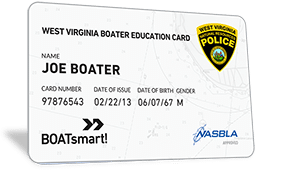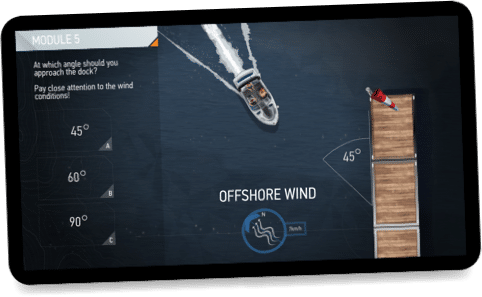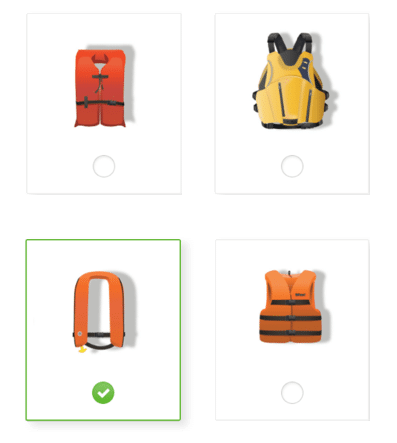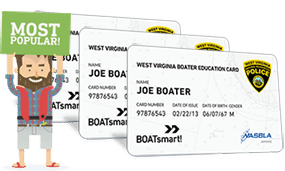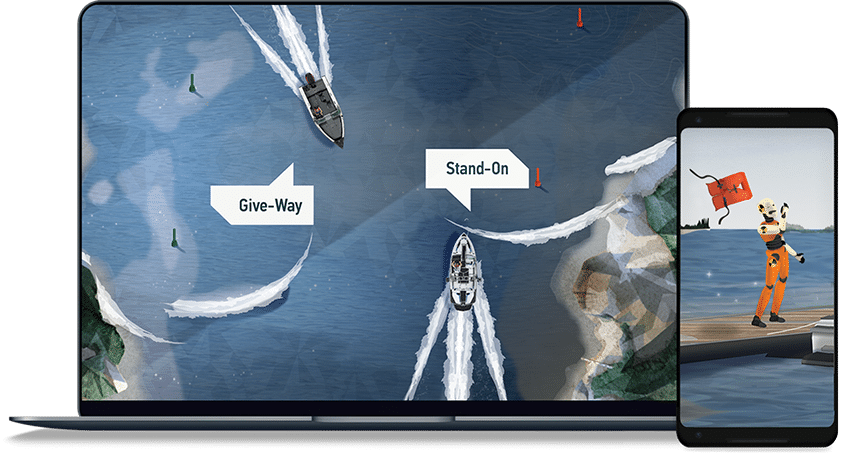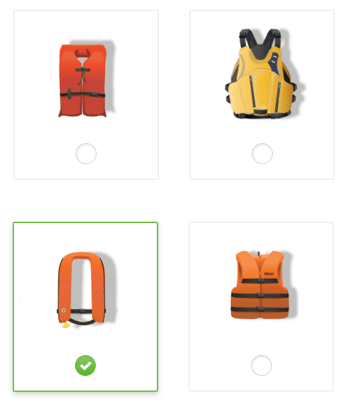What is a West Virginia Boater Education Certificate?
The West Virginia Boater Education Certificate is proof that a boater has successfully passed the West Virginia Boating Safety Test. All boat operators born on or after December 31st, 1986 are required to get certified to legally operate a motorized boat or personal watercraft within the state.
Is the West Virginia Boater Education Certificate the same as a Boating License?
The West Virginia Boater Education Card is proof of successful completion of the West Virginia state-approved boater education course. The card is commonly referred to as a “boating license” However, unlike a license the Boater Education Certificate does not expire, and does not need to be renewed.
Who needs a West Virginia Boater Education Certificate?
All boat operators born after December 31st, 1986 are required to obtain a West Virginia Boater Education Certificate in order to legally operate any motorized boat or PWC within the state. The certificate must be carried on board the boat at all times during operation.
Who is exempt from having to obtain a North Carolina Boater Education Card?
- Non-residents who are visiting the state for 60 days or less in a motorized boat or PWC from another state, so long as that person is 15 years of age or older and has been issued a NASBLA-approved Boating Safety Education Certificate by his or her state of residence.
- Persons visiting the state for 90 days or less in a motorized boat or PWC from a country other than the United States.
- A person operating a motorized boat or PWC which was purchased by the person within the previous 45-day period and who has not been previously charged with a boating violation.
What is the fine for not having a certificate?
Boaters caught without a Boater Education Certificate may receive a fine of up to $1000. Keep in mind that certified boaters must carry the card on board their boat at all times during operation.
How do I get a West Virginia Boater Education Card?
You can obtain your official Boater Education Certificate from BOATsmart! in three steps:
- Take the BOATsmart! West Virginia Boating Safety Course online.
- Pass the West Virginia Boating Safety Test online.
- Print a Temporary Certificate immediately.
Will my West Virginia Boater Education Certificate ever expire?
No. Your West Virginia Boater Education Certificate is good for life. However, it’s important to keep up-to-date with the most recent boating safety regulations. Be sure to take advantage of BOATsmart!’s free refresher lessons to be sure you’re aware of the rules that apply in your state.
How do I replace my West Virginia Boater Education Certificate?
You can easily purchase a replacement West Virginia Boater Education Certificate from BOATsmart!. Call us at 1-877-655-7778 to order, or login to your BOATsmart! Account to order online.
Do I need a Driver’s License to operate a boat in West Virginia?
No. The state of West Virginia does not require boaters to have a driver’s license in order to operate a boat. However, if you were born after December 31st, 1986 you are required to obtain a boater education certificate in order to legally operate any motorized boat or PWC within the state. The Certificate must be carried on board the boat during operation.
Do I need a Boater Education Certificate for all types of boats?
Yes. Depending on your age, the West Virginia Boater Education Certificate is required to operate any motorized boat or PWC within the state of West Virginia. There are no exemptions for horsepower.
How long does the West Virginia Boater Education Course take?
The state of West Virginia requires that you spend a minimum of 3 hours studying the online course. The purchase of your BOATsmart! West Virginia Boating Safety Course includes unlimited lifetime access.
Is my West Virginia Boater Education Certificate valid in other states?
Yes. The West Virginia Boater Education Certificate is accepted in 40 states, which extend reciprocity. This means the BOATsmart! Course meets the National Standards established by NASBLA. This law applies to operators of motorized boats, but not in all states to operators of personal watercraft (PWCs). Always check the boating laws in the state you plan to visit prior to operating a boat or PWC there.
